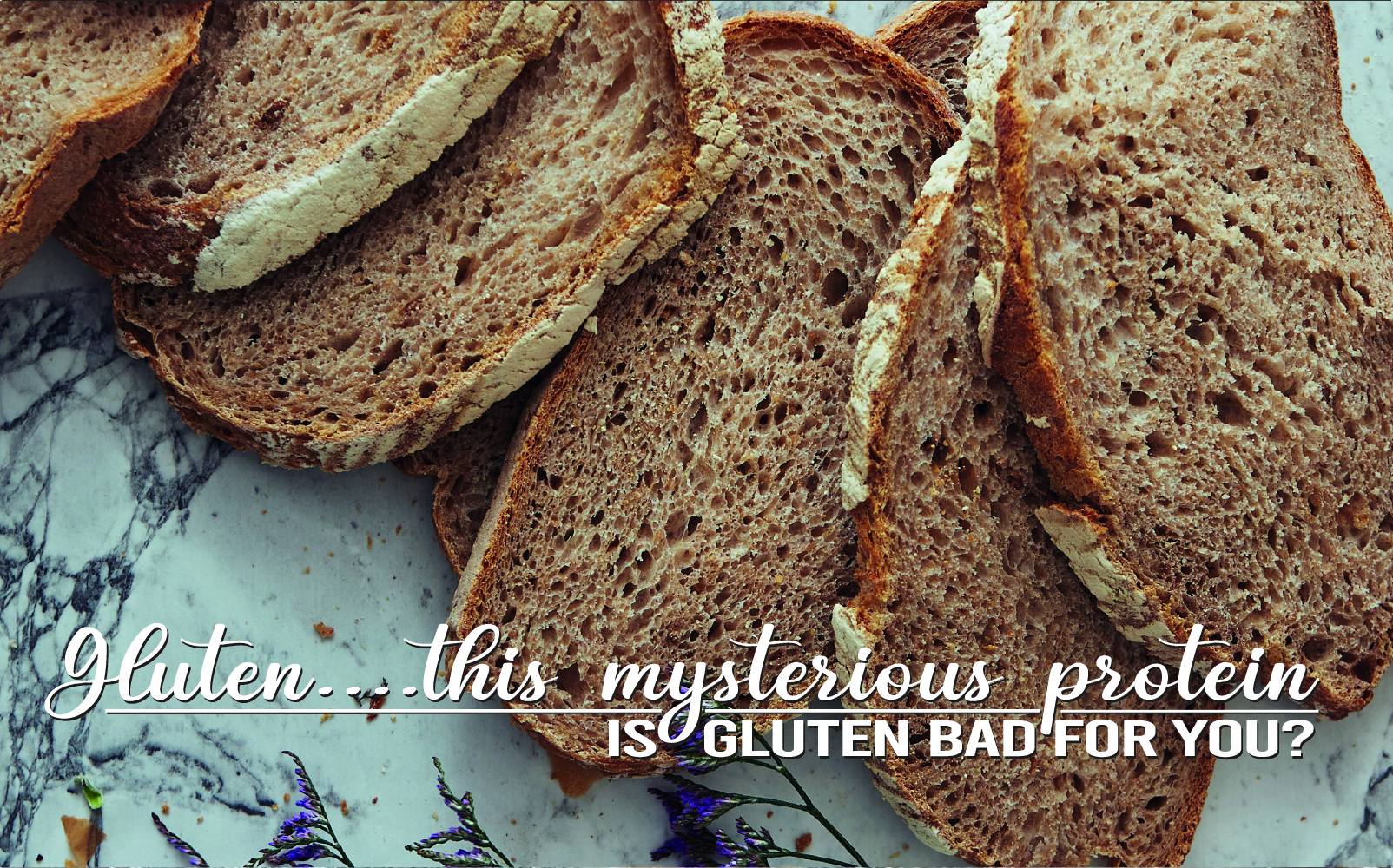BLOG / Is gluten bad for you?
04 Apr 2021
Since we opened our bakery, we realised that gluten, this poor protein created during the fermentation process, is in the minds of many people considered a negative element in their everyday diet.
So with this article, we want to clarify and explain things properly.
Most of the cereals cultivated today are thought to contain gluten. In all truth gluten doesn’t exist in nature and neither can be created.
The term gluten indicates simply the final result of a physical reaction between groups of proteins, water and the application of energy (kneading). Different groups of protein contained in the flour (such as Gliadins and Glutenins), start to gather and form a long protein chain when reacting with water. In this phase, you have a really sticky and soggy dough. When you start kneading, this dough slowly slowly becomes more compact and increases its resistance to extension. It is exactly during this phase that Gluten appears as an elastic net of proteins.
Gluten is a Latin word meaning “glue”. In fact this elastic and compact “net” is the glue that allows the bread to leavening but maintaining its shape.
Since humans started to practice agriculture, cereals and flour products became a substantial part of the human diet. Cereals can be cultivated in big quantities and stocked easily to overcome difficult times. Bakery products are an important source of energy and make you feel satiated.
The Italian cuisine entails many recipes containing gluten and the Mediterranean diet is considered one of the most healthy. The majority of the Italian population eats gluten products daily.
Nevertheless, something has changed.
Many people think that gluten is not good for health. In the last 30 years, there has been an increment of people with intolerance to gluten. Many others consider gluten as the main cause of their digestive problems.
Before the ‘00 it seemed that gluten was “off limits” only for those affected by coeliac disease. Coeliac disease is caused by genetic factors. Your body cannot assimilate gluten and makes you feel very sick.
In the restaurant the gluten free option was very limited. Today instead, wherever you go for your meal you can find a gluten free menu with a variety of choices.
What is happening? Is gluten really bad for our diet?
Answer: NO!
Many studies have revealed that gluten itself is not harmful (except for coeliacs). Eliminating gluten from your diet, it doesn’t bring any benefit to your health.
HOWEVER, It always depends on what quality of gluten and bread you are eating.
The quality of grains and cereals has decreased and this affects the quality of the bread made.
In the last 50 years the world population has increased drastically. Due to this increment, we had to increase our food production to be able to feed everyone. So food companies had to find new solutions to be able to satisfy the world's food demand. In order to do that it has been necessary to manipulate the natural life cycle of the plants: reducing the distance between plants in the fields, so that a higher number of plants can be grown in a limited space; Using chemical and fertiliser to boost the growth of the plant; Manipulating the genetic of the plant due to create individuals more resistant and with less needs.
Thanks to these massive over-control, we can find everyday flour and bread in our supermarket for a cheap price, but unfortunately also with a lower quality.
Manipulating excessively the genetic and environment of the plants has result in:
- Creation of incomplete proteins and elements;
- Weak cereal with poor nutritional aspect;
- Gluten formed is difficult to digest;
- Bread is tasteless;
- Bread needs preservatives to stay soft longer;
These listed above, are the main reasons why so many people are developing an intolerance to gluten. It is the natural body reaction to a food that is not good for it because of its bad quality.
At Casella&Polegato, we are committed to deliver to our customers healthy and tasteful bread every day. We use only organic ingredients in our bread combined with traditional methods and our passion. All our customers are witnesses of the high digestibility and great taste of our products. After trying our bread, most people cannot go back to the tasteless and poor bread of the supermarkets.
In addition, we proudly re-introduced many customers, considered having a gluten intolerance, to eat bread again with no negative consequences for their health. Many of those once came into our shop asking for a bread with no gluten, claiming they were lightly gluten intolerant. We invited them to try our low gluten organic bread such as Spelt, Kamut, Rye and Semolina. They love it and cannot stay without it.
Do you want to know more about Organic ingredients and the different flours we use? Keep an eye to our blog….new articles coming soon!!
